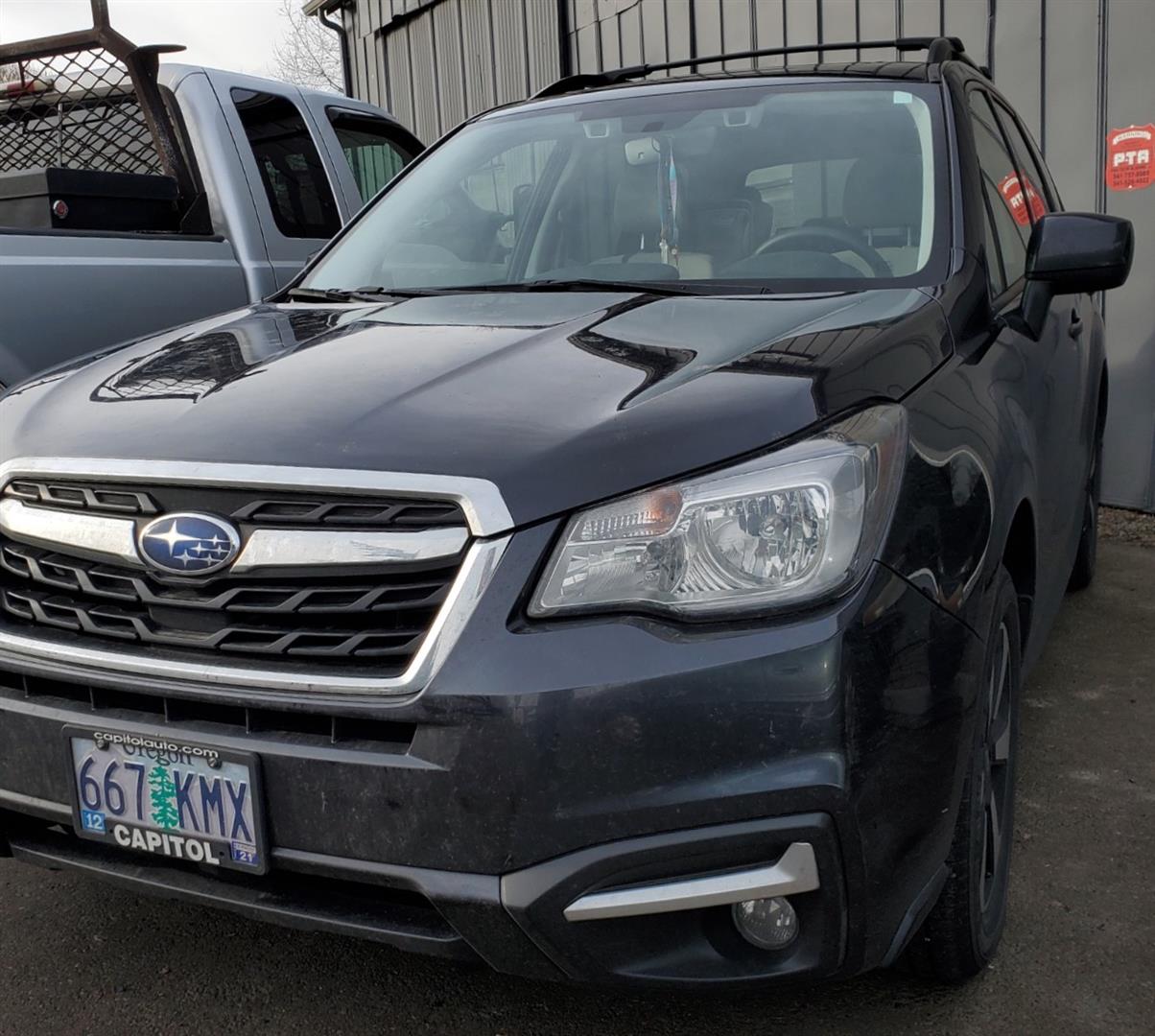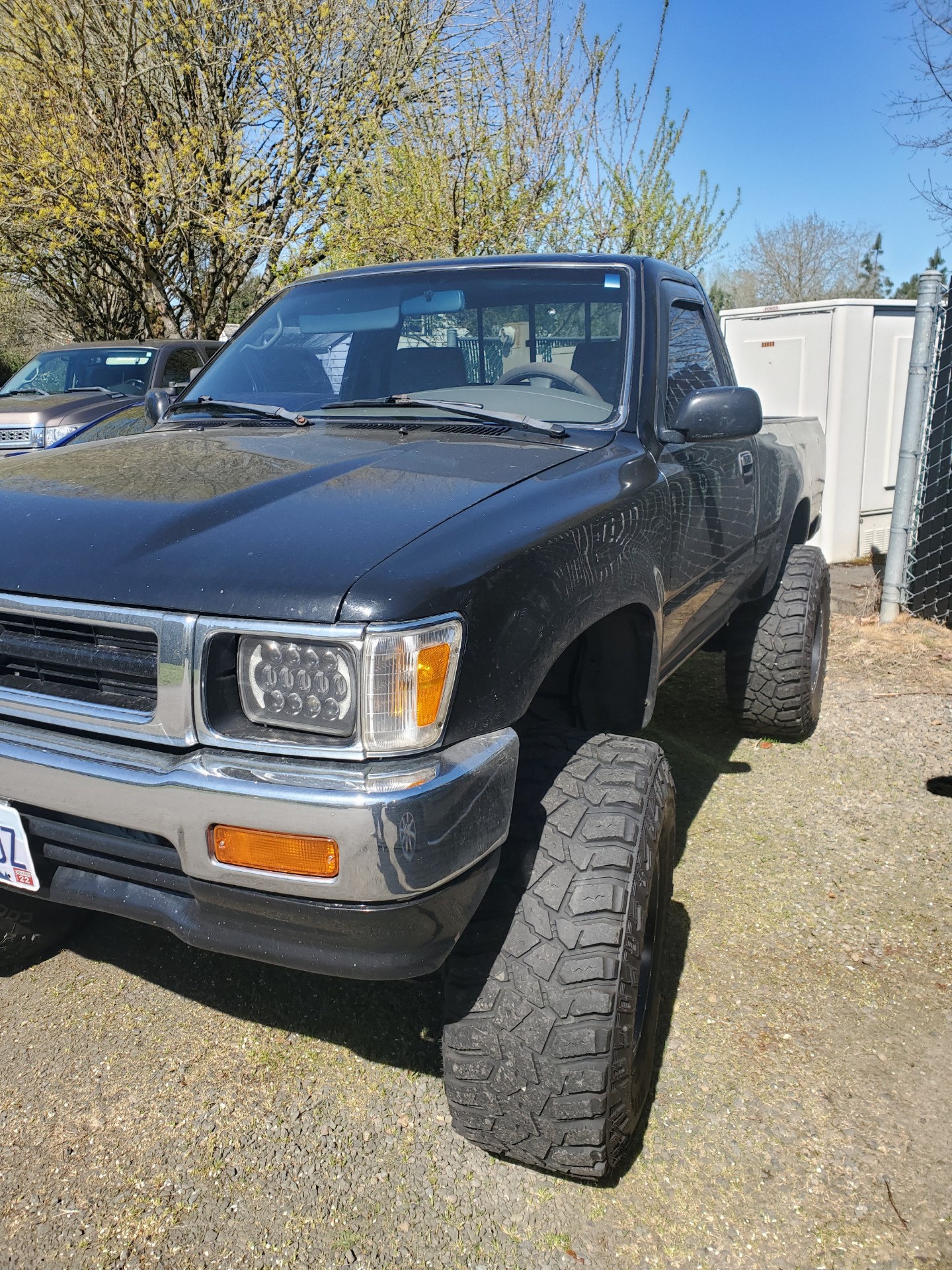Posted on 6/4/2024
The open highway beckons, promising adventure and escape. But before you buckle up and blast the tunes, a little preparation can ensure your road trip is smooth sailing (or cruising, as the case may be). This guide will equip you with the knowledge to get your car road-ready and yourself packed and prepped for an unforgettable journey. First off get a Checkup: Schedule a pre-trip inspection. They'll ensure your car is in tip-top shape, checking fluids, tires, belts, hoses, and lights. Fluids and Filters: Fresh oil, coolant, and wiper fluid are essential. Consider replacing air filters for optimal engine performance and cabin comfort. Tire Talk: Check tire pressure and tread depth. Don't forget the spare! A roadside tire change is much easier with a properly inflated spare. You can request this to be checked at your vehicle inspection. Pack an Emergency Kit: Be prepared for minor mishaps. Include a jack, lug wrench, jumper cables, flares, a fla ... read more
Posted on 2/16/2024
Maintaining a medium-duty truck is essential for ensuring optimal performance, longevity, and safety on the road. To simplify this process, we've compiled a comprehensive maintenance checklist that covers all the crucial aspects of keeping your medium-duty truck in top-notch condition. Follow this guide regularly to identify and address potential issues before they become major problems. 1. **Engine Checks:** - Regularly inspect your truck's engine for any signs of leaks, unusual noises, or changes in performance. - Check and change the engine oil according to the manufacturer's recommendations. - Inspect the air filter and replace it if it's dirty or clogged. 2. **Fluid Levels:** - Monitor the levels of essential fluids, including coolant, transmission fluid, brake fluid, and power steering fluid. - Top off fluids as needed and address any leaks promptly. 3. **Tire Inspections:** - Conduct ... read more
Posted on 1/16/2024

Experiencing vibrations or shakes while driving can be disconcerting, raising concerns about your vehicle's performance and safety. 1. **Wheel and Tire Imbalances:** One of the most frequent reasons for a car to shake is imbalances in the wheels and tires. Uneven distribution of weight or tire wear can lead to vibrations, especially at higher speeds. Regular tire rotations and wheel balancing can help prevent this issue. Tire rotations should be done every 5,000 miles. 2. **Wheel Misalignment:** Misaligned wheels can cause uneven tire wear and result in vibrations. If your car consistently pulls to one side, it's a sign of potential wheel misalignment. Aligning the wheels properly can eliminate shakes and improve overall handling. We recommend an annual alignment for you vehicle. Pot holes and other hazards can cause your alignment to be misaligned. 3. **Worn or Unbalanced Tires:** Tires with uneven wear or those that ... read more
Posted on 11/30/2023
Winter is here, and it's time to think about the best tires for snowy roads. Two main types are studded and studless snow tires, and each has its own strengths. Let's explore the differences to help you choose the right ones for your winter drives. Studless Snow Tires: Quiet and Snow-Friendly Studless snow tires are made with a softer material to grip snowy surfaces better. They don't have metal studs, so they're kinder to roads. These tires work well in the snow, giving you good control and handling. Their soft rubber can bend with the snowy road bumps. Good Things about Studless Snow Tires: 1. All-Around Use: These tires work great in different winter conditions, making them good for places with lots of snow. 2. Not Too Loud: Because of their soft material, these tires don't make much noise on dry roads, so your ride is smoother and quieter. 3. Gentle on Roads: They're less likely to damage roads, which is good if you're in an area that ca ... read more
Posted on 8/16/2023

Teaching your teenager about maintaining a vehicle is a valuable life skill that can save them money, ensure their safety, and promote responsible ownership. Here are some important things your teen should know: Regular Maintenance Schedule: Explain the importance of regular maintenance tasks, such as oil changes, tire rotations, air filter replacements, and fluid checks. Following the manufacturer's recommended maintenance schedule helps keep the vehicle running smoothly and prevents potential issues. Oil Changes: Teach your teen how to check the oil level and understand when an oil change is needed. Explain the different types of motor oil and why choosing the right one is essential. Tire Care: Show them how to check tire pressure and tread depth. Properly inflated tires improve fuel efficiency and handling, while good tread depth ensures safe driving in various weather conditions. Fluid Checks: Familiarize y ... read more
Posted on 12/2/2022
Why does my car shake when I brake? If your car starts shaking when you brake, it could be a sign of brake problems. There are several things that can cause this issue, and it's important to have your brakes checked out as soon as possible if you're experiencing this problem. In this blog post, we will discuss the different causes of car shaking and what you can do to fix them. When a car is shaking when braking, it's typically caused by one of three things: worn-out pads, warped rotors, or misaligned wheels. Worn-out pads are the most common issue, as they can cause excessive vibration when applied. Warped rotors are another common issue that causes shaking, and this occurs when the rotors become uneven due to excessive heat and wear. Lastly, misaligned wheels can also cause cars to shake when braking, as they can cause the brakes to be applied unevenly or sporadically. The best way to address these issues is by having a professional inspect your bra ... read more
Posted on 9/16/2022

We are gearing up for Brakes for Breasts again this year. We were fortunate to participate for the first time last year and we are excited to bring this opportunity back to you next month. We have partnered with Napa Auto Parts in Albany. What is brakes for breasts? It is about bringing awareness of breast cancer and the research to create a vaccine to prevent breast cancer. Free brake pads! Tell me more. The details – if you need brake pads or shoes for the month of October, we will supply you with the brake pads or shoes for free. You just pay for the labor and any additional parts needed. The brake pads or shoes are free to you. Questions? Give us a call and we will be happy to answer them for you. Happy Adventures, Heather
Posted on 3/21/2022

Why do my brakes grind? Your brakes are most likely making a grinding noise due to your brake pad being worn out. When your brake pad wears out the backing material of the brake pad will touch the brake rotor and that will cause a grinding noise. This will also happen if one of your brake calipers is stuck causing your brake to be on all the time. If your fuel mileage has recently gone down this could be one culprit. Anytime that your brakes are making a noise then they need to be checked. We do free brake inspections on most makes and models. Give us a call and let us take care of you. Happy Adventures, Heather Our specials can be found here - Specials - J & H Automotive, Inc Ready to make an appointment … Appointments - J & H Automotive, Inc Want to know more &hellip ... read more
Posted on 9/28/2021
Brakes for Breasts 2021 We have partnered with Fast Undercar in Salem Oregon to be a participating shop. Brakes for Breasts is an organization that unties independent repair shops across the country for the month of October. All participating shops will provide customers with free brake pads or shoes and the customer simply pays for the labor and any other parts that may be needed. The shop then donates 10% of that total to the Breast Cancer Vaccine Fund. How it works – you pay for the labor and any other brake parts that are needed. The brake pads or shoes are covered. We keep track of it and at the end of the month we donate 10% of each ticket to the Breast Cancer Vaccine Fund. Everyone wins. You have new brakes, and we get to donate to something that affects so many women and families. Give us a call and let us take care of you. Happy Adventures, Heather
Posted on 1/4/2021
Your car might be shaking due to a faulty u-joint. Your u-joint is one piece of your drive lines components. This connects your transmission to your axles and/or differentials. Over time the joint will wear out and this will cause a shaking or vibration while driving. It typically is very minor and gets progressively worse overtime. Give us a call to schedule your appointment and let us take care of you. Happy Adventures, Heather